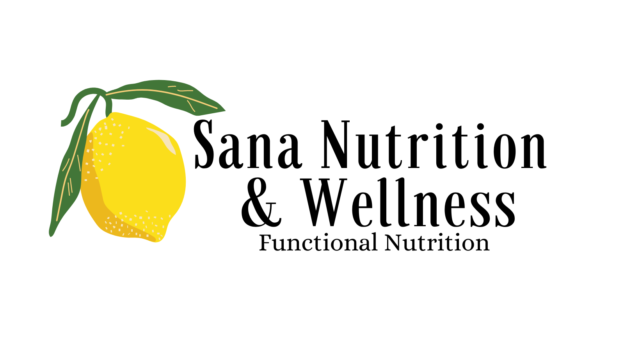There’s a saying: It’s like a fox in the henhouse. It’s the perfect way to describe something inherently wrong—a predator put in charge of its prey. Lately, this analogy feels all too real in our government. Industry insiders are being appointed to oversee the very agencies meant to regulate them, and we’re being told they’re there to fix the systems they’ve profited from exploiting. And we must ask: what are the true priorities of the people being put in charge of the agencies meant to regulate them?
The Role of Government vs. Industry
One of the fundamental roles of government is to protect citizens from harm. Governments are supposed to act as the referee, setting the rules and ensuring industries play fair. On the other hand, an industry’s job is simple: create products and services, innovate, and maximize profits. And that’s fine—in fact, it’s worth applauding. Innovation and industriousness have brought us life-saving technologies, conveniences that make life easier, and countless opportunities for progress.
But here’s the rub: when profits become the sole focus, companies may lose sight of the collateral damage caused by their practices. Their job isn’t to worry about societal well-being—their job is to deliver returns to shareholders. This isn’t inherently bad, but it creates a gap that only government oversight can fill. Without checks and balances, industries can and will exploit their power, often to the detriment of the very people they’re supposed to serve.
When Profit Overshadows People
Let’s take a closer look at a few industries where this imbalance is glaringly obvious:
Healthcare
The healthcare industry is designed to save lives, but too often, it’s driven by profits rather than patient outcomes. The largest medical and hospital corporations, wielding significant influence through lobbying and political donations, are raking in enormous profits while countless people face medical bankruptcy due to exorbitant healthcare costs. Meanwhile, shareholders of these companies enjoy massive payouts, further highlighting the disparity. Rising drug prices, opaque billing practices, and prioritizing high-margin procedures over preventative care are just a few examples of this broken system. While innovation in medicine is essential, unchecked profit motives create a healthcare landscape that is increasingly inaccessible and unequal.
Our Food System
From factory farming to ultra-processed foods, the food industry prioritizes efficiency and profit over public health. Additives, pesticides, and marketing campaigns for unhealthy foods contribute to an epidemic of obesity and chronic diseases. Meanwhile, sustainable farming practices and small-scale farmers are often left unsupported, despite their potential to improve health and the environment.
Financial industry
The financial sector is vital to economic stability, yet it’s also prone to risky behaviors and exploitation when left unchecked. Think of the 2008 financial crisis—a direct result of predatory lending and unregulated markets. Today, consumers still face exorbitant fees, predatory loans, and data misuse.
Big Tech
Technology has transformed our lives in countless positive ways, but the unchecked power of big tech companies raises serious concerns. Issues like data privacy, algorithmic bias, and misinformation are widespread, with companies prioritizing engagement and ad revenue over user well-being. This often comes at the expense of mental health and even democracy itself. Moreover, substantial tech donations to political administrations risk further entrenching these companies’ influence, allowing their interests to take precedence while the public looks the other way—deepening the problem of corruption and unchecked power.
The Danger of Deregulation
Here’s the thing: industries thrive when they can operate freely, but only up to a point. The moment their practices start harming people, governments must step in. Deregulation, while appealing in theory, often leaves the fox in charge of the henhouse—allowing industries to put profit over people with little to no accountability.
For example, when safety standards are rolled back in food production, we see outbreaks of preventable diseases.
When environmental protections are weakened, companies dump pollutants into water supplies.
When financial regulations are eased, ordinary people pay the price of lost savings and economic instability.
Why Oversight Matters
Government oversight isn’t about stifling innovation or punishing success—it’s about balance. It’s about ensuring industries can continue to innovate and profit without putting lives, health, or the planet at risk. This balance is crucial for:
- Public Safety: Regulations ensure that products and services don’t endanger consumers.
- Equality: Oversight prevents exploitation of vulnerable populations.
- Sustainability: Industries are held accountable for their environmental impact.
- Trust: Strong regulations build consumer trust, which benefits industries in the long run.
What Needs to Change
To fix the imbalance, we need:
- Stronger Consumer Protections – Governments must prioritize laws protecting consumers from exploitative practices, such as surprise medical billing, managing outrageous medical fees, and unhealthy/unsafe food practices. or predatory financial products.
- Transparency – Industries should be required to disclose practices that impact public health and safety, such as medical billing, food labeling or data collection policies.
- Accountability – When companies break the rules, there need to be real consequences, not just a slap on the wrist or changing policy to fit their needs because of large donations.
- Public Advocacy – Citizens need to stay informed and vocal about policies that affect their well-being. Change happens when people demand it.
A Call for Balance
At the end of the day, industries have their role, and governments have theirs. Industries should continue innovating and driving progress. Governments should ensure that this progress doesn’t come at an unacceptable cost to society. Without this balance, we risk letting the fox run wild in the henhouse—and ultimately, we all lose.
Let’s work toward a world where innovation and oversight go hand in hand, ensuring that progress doesn’t come at the expense of the greater good.




